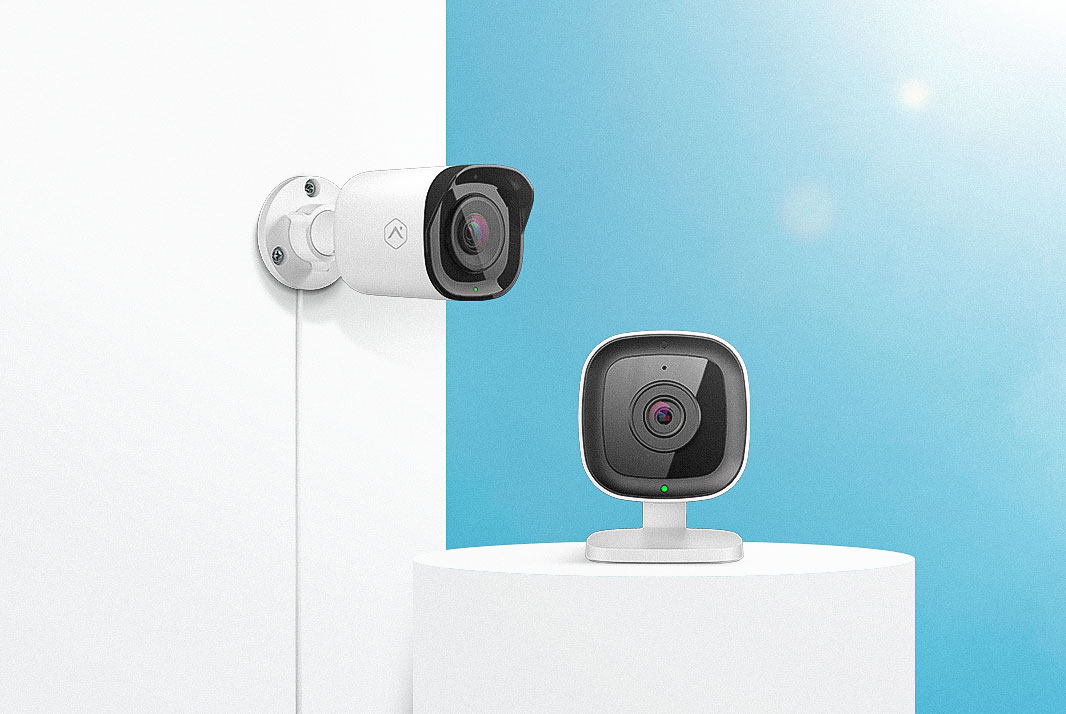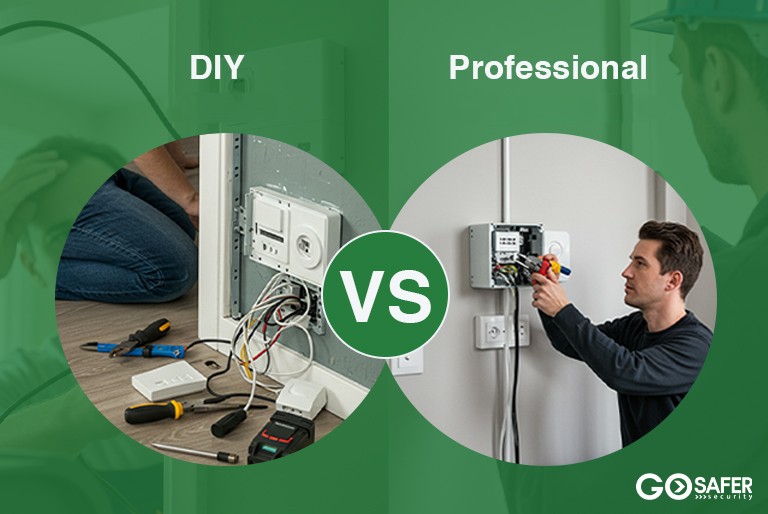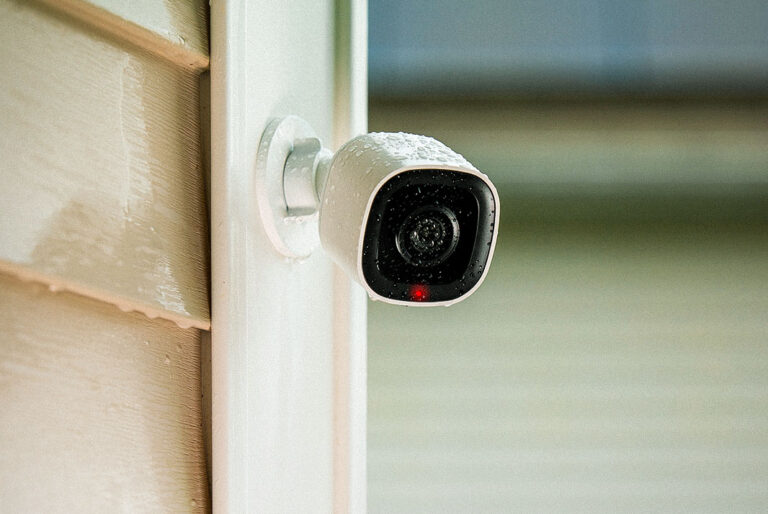When it comes to securing your home or business, choosing the right type of security camera can make all the difference. Should you go with wired or wireless security cameras? This comprehensive guide will help you understand the key differences, benefits, and potential drawbacks of each, enabling you to make an informed decision.
Table of Contents
ToggleUnderstanding Security Cameras
Security cameras are essential tools for monitoring and safeguarding properties. They have evolved significantly over the years, transitioning from simple analog systems to advanced digital solutions capable of high-definition video, remote access, and smart integration.
Types of Security Cameras
Wired Security Cameras
Wired security cameras are connected to a recording device and power source via cables. They are known for their reliable connection and consistent performance.
Wireless Security Cameras
Wireless security cameras, on the other hand, use Wi-Fi or other wireless technologies to transmit data. They are powered by batteries or connected to an electrical outlet and offer greater flexibility in terms of installation and placement.
Features of Wired Security Cameras
Connection and Power Source
Wired cameras rely on physical cables for both power and data transmission. This setup ensures a stable connection with minimal risk of interference.
Installation Process
Installing wired cameras can be more complex due to the need for running cables through walls or ceilings. This often requires professional assistance.
Reliability and Performance
The hardwired connection of these cameras provides a dependable performance with little to no latency, making them ideal for critical security applications.
Features of Wireless Security Cameras
Connection and Power Source
Wireless cameras transmit data over Wi-Fi and are typically powered by batteries or a nearby power source. This eliminates the need for extensive wiring.
Installation Process
The installation of wireless cameras is generally easier and quicker. They can be mounted almost anywhere within the range of the wireless network.
Flexibility and Versatility
Wireless cameras offer unmatched flexibility, allowing you to relocate them as needed without the hassle of rewiring.
Comparison of Video Quality
Resolution and Clarity
Both wired and wireless cameras can offer high-definition video, but wired cameras often provide more consistent video quality due to their stable connection.
Transmission Stability
Wired cameras are less susceptible to transmission issues, while wireless cameras can experience interference from other devices and networks.
Storage Options
Wired systems usually come with dedicated DVRs or NVRs, providing ample storage. Wireless systems often rely on cloud storage, which can incur additional costs.
Installation and Setup
Wired Camera Installation
Wired installations are labor-intensive and may require professional help. The process involves running cables through walls, ceilings, and other obstacles.
Wireless Camera Installation
Wireless cameras can be installed with minimal effort. They require only mounting and connecting to a power source, making them ideal for DIY projects.
DIY vs. Professional Installation
While wireless cameras are DIY-friendly, wired systems often benefit from professional installation to ensure optimal performance and neat cable management.
Cost Analysis
Initial Costs
Wired systems typically have higher initial costs due to the need for cables, recording devices, and professional installation.
Long-term Costs
Wireless systems may have higher long-term costs associated with battery replacements and cloud storage fees.
Hidden Expenses
Both systems can have hidden costs, such as maintenance, software updates, and potential repairs.
Reliability and Performance
Network Interference
Wireless cameras can be affected by network interference from other wireless devices, potentially leading to video lags or disconnections.
Power Outages
Wired cameras are vulnerable to power outages unless they are connected to a backup power source. Wireless cameras with battery backups can continue operating during outages.
Data Transmission
Wired systems offer secure and uninterrupted data transmission, while wireless systems depend on network reliability, which can be compromised by distance and obstacles.
Security and Privacy
Vulnerabilities in Wired Cameras
Wired cameras are generally more secure against hacking but are not immune to physical tampering.
Vulnerabilities in Wireless Cameras
Wireless cameras can be vulnerable to hacking and signal interception if not properly secured with encryption and strong passwords.
Encryption and Data Protection
Both types should use encryption to protect data transmission. Regular updates and strong security practices are essential to maintaining privacy.
Maintenance and Upkeep
Wired Camera Maintenance
Wired systems require regular checks to ensure cables are intact and connections are secure.
Wireless Camera Maintenance
Wireless cameras need battery checks and replacements, as well as software updates to ensure optimal performance.
Software Updates
Both systems require periodic software updates to fix bugs and enhance security features.
Scalability
Expanding a Wired System
Adding more cameras to a wired system can be challenging due to the need for additional cabling and potential limits of the recording device.
Expanding a Wireless System
Wireless systems are easier to expand, as new cameras can be added to the network without extensive wiring.
Future-proofing Your Setup
Consider future needs when choosing a system. Wireless cameras offer more flexibility for upgrades and expansion.
Pros and Cons of Wired Security Cameras
Advantages
- Reliable and stable connection
- Consistent video quality
- Secure data transmission
Disadvantages
- Complex installation
- Limited flexibility in camera placement
- Higher initial costs
Pros and Cons of Wireless Security Cameras
Advantages
- Easy installation
- Flexible placement
- Lower initial costs
Disadvantages
- Potential for network interference
- Battery maintenance
- Variable video quality
Choosing the Right System for Your Needs
Assessing Your Requirements
Determine the specific security needs of your property, such as coverage areas and critical monitoring points.
Considering the Environment
Consider factors like network range, potential interference, and power sources when choosing between wired and wireless systems.
Budget Considerations
Evaluate both initial and long-term costs to find a system that fits your budget without compromising on essential features.
Conclusion
Choosing between wired and wireless security cameras depends on your specific needs and circumstances. Wired cameras offer reliability and consistent performance, while wireless cameras provide flexibility and ease of installation. Assess your security requirements, environment, and budget to make the best choice for your situation.







